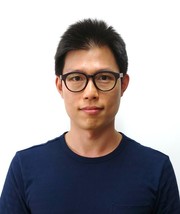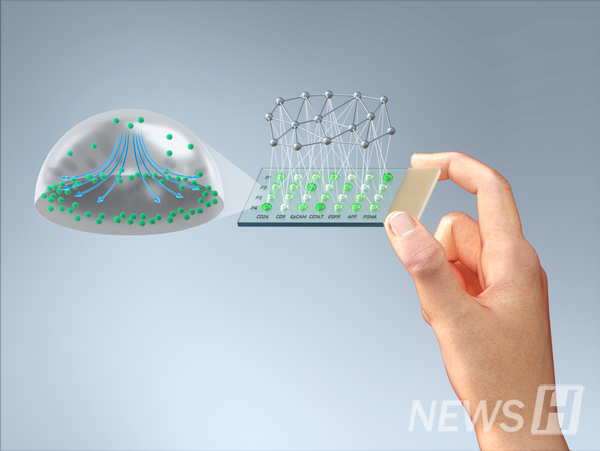Idea from the coffee ring effect...multiple cancers such as lung cancer can be diagnosed
Hanyang University announced on November 8 that Professor Choi Sung-young's team at Hanyang University's Department of Biomedical Engineering has developed a technology that can diagnose multiple cancers with a small amount of blood. This technology is based on the coffee-ring effect, which detects "extracellular vesicles" released by cancer cells with high sensitivity using a microfluidic droplet array. It is expected to be used for diagnosis various cancers such as lung cancer.
Extracellular vesicles are micro vesicles of tens to hundreds of nanometers from cells as a medium for signal transmission of cells. Micro vesicles contain various biomarkers such as proteins, nucleic acids, and lipids derived from mother cells. They are attracting attention as a material suitable for tracking the progression of diseases in real time because they exist at high concentrations in the blood. Since cancer cells have unique protein markers, active research to use extracellular vesicles for cancer diagnosis is conducted at domestic and abroad.
However, due to the low concentration of extracellular vesicle subtypes from cancer cells, it is difficult to detect subtypes. It is also difficult to accurately diagnose cancer with a single protein marker due to tumor heterogeneity.
The research team got an idea to overcome these shortage in the "coffee-ring effect" that can be easily observed in everyday life. The coffee-ring effect refers to a phenomenon in which coffee slowly evaporates from a coffee cup and the dissolved coffee powder flows to the edge. Using this effect, Professor Choi's team developed a technology that can concentrate extracellular vesicles at the edge of microfluidic droplets and capture them with antibodies to detect fluorescence with high sensitivity. The technology was able to easily detect extracellular vesicles by subtype, using different antibodies.
As a result, the sensitivity to the detection of extracellular vesicles has improved more than five times compared to conventional test methods. In particular, the test results of seven extracellular cell subtypes were analyzed with machine learning techniques, which turned out to achieve 100% diagnostic accuracy for stage 3 and stage 4 cancer patients (five cancers including lung cancer).
Professor Choi said, "Currently, we are competitively developing cancer diagnosis using extracellular vesicles around the world. But there have been limitations in applying it to various cancer diagnoses." The high-sensitivity droplet sensor can be used to diagnose various cancers as it can test the protein markers of accurate and diverse extracellular vesicles with a small amount of blood."
The study, which was conducted with the support of the National Research Foundation of Korea, Support for Senior Researchers, and the SRC/ERC (Science Research Center/ Engineering Research Center), was published on September 28 in the international journal "Biosensors and Bioelectronics" in the field of biosensors.
The paper was participated by Lee Eun-jung and Shin Soo-yeon, in their integrated Ph.D., at Hanyang University as the first author, while Professor Kim An-mo’s team of Hanyang University and Professor Yang Seung-yoon’s team at Pusan National University participated as co-author.


Click to see the paper:
https://www.sciencedirect.com/science/article/pii/S0956566322008004?via%3Dihub
키워드
 '한양위키' 키워드 보기
#SDG3
'한양위키' 키워드 보기
#SDG3

